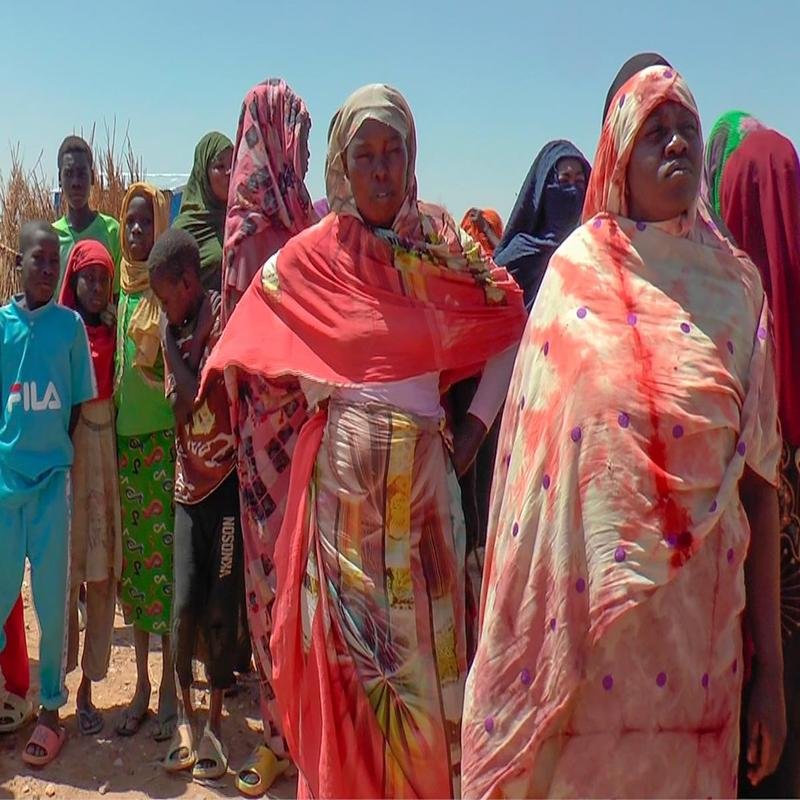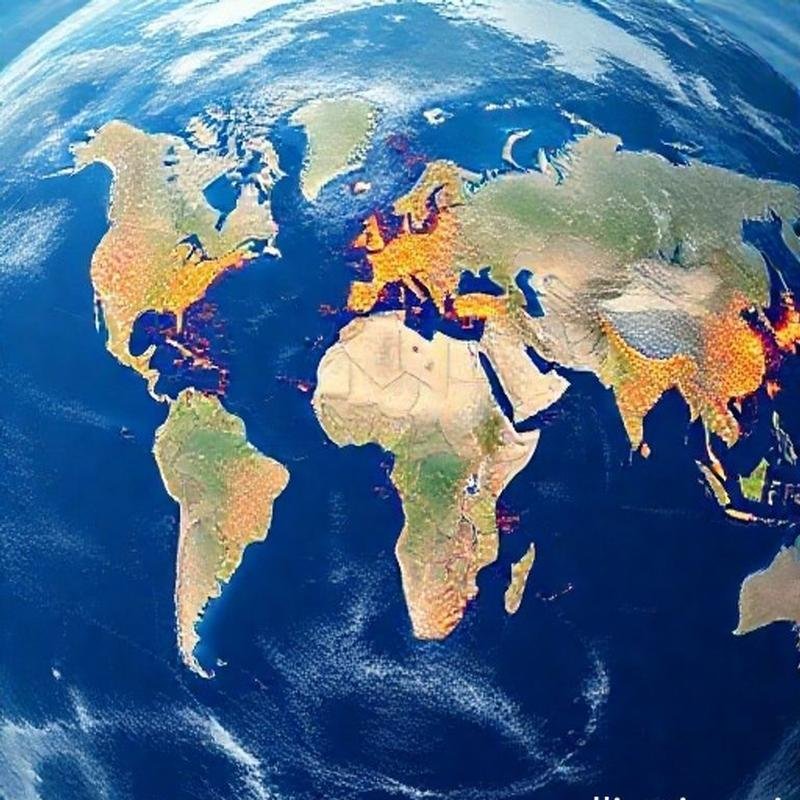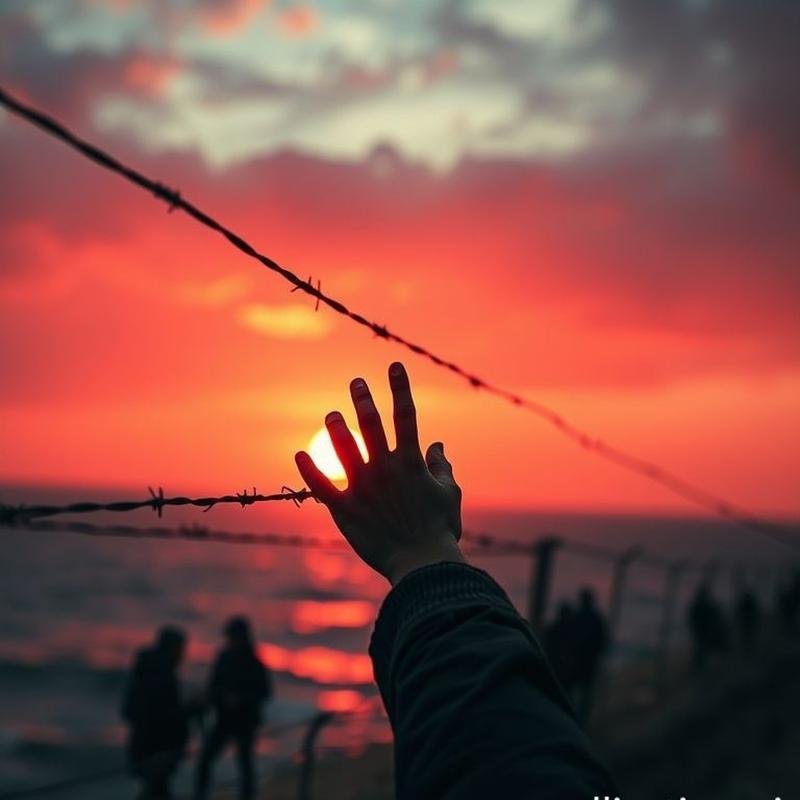The Ethics of Escape: Who Survives? 🤯📜 Justice is a Sham.

Escape Ethics: Survival, Justice, and Global Displacement
Is survival determined by strength or intellect, or is it contingent upon financial resources? Escape is often a privilege afforded to the affluent, while others face mortal danger. Who survives, and who is left behind? History is replete with instances of forced migration, and the global refugee crisis is a stark reflection of a reality interwoven with despair, conflict, fear, and hope.
The Global Refugee Crisis: A Statistical Overview
At the close of 2022, the UNHCR reported 108.4 million forcibly displaced individuals, each representing a narrative of loss and suffering. The war in Ukraine triggered the largest refugee displacement since World War II, with over six million Ukrainians seeking refuge in other European countries. However, conflict is not the sole driver. Extreme poverty, affecting over 730 million people, compels migration as a necessity for survival. Natural disasters internally displaced 23.7 million people in 2021 alone, leaving homes and lives devastated.
The Climate Crisis and Forced Displacement
“No one puts their children in a boat unless the water is safer than the land,” a poignant observation by Somali-British poet Warsan Shire, encapsulates the desperation of refugees and their agonizing choices. The climate crisis further exacerbates this situation. The World Bank projects that by 2050, 216 million people may be internally displaced due to climate change impacts, including droughts, floods, and rising sea levels.
The 2015 European Refugee Crisis
The 2015 European refugee crisis, marked by the arrival of over one million asylum seekers, exposed the vulnerabilities of political and social systems and the challenges of managing increased migration flows. It also highlighted the capacity for empathy and solidarity in the face of adversity.
However, do these statistics fully capture the human tragedy? The crisis transcends mere numbers; it is a profound humanitarian crisis.
Historical Perspectives on Migration
Throughout history, migration has been a significant social and political phenomenon, reshaping societies and civilizations. Examining history as an interconnected web of motives and consequences reveals the enduring impact of past decisions.
The Hijra: A Foundation for a New Society
In 622 AD, the Prophet Muhammad’s migration from Mecca to Medina was a transformative event, establishing a new state and civilization. This migration was not merely an escape but a reconstruction of society based on security and justice. While it is not accurate to say these migrants were more deserving of survival, their circumstances allowed them to redefine and reshape the very concept of survival.
The Golden Age of Islam: Migration for Growth
The Golden Age of Islam witnessed a reverse migration, attracting scholars and artists to Baghdad due to the unprecedented scientific and cultural prosperity fostered by the House of Wisdom. This migration was driven by a desire for growth and creativity. While these scholars were not necessarily more deserving, Baghdad’s thriving social and economic system enabled them to realize their full potential.
The Expulsion of the Moriscos: A Tragedy of Forced Displacement
The 17th-century expulsion of the Moriscos from Spain represents a tragic instance of forced displacement and cultural erasure. Thousands fled to North Africa and the Ottoman Empire, carrying memories of a lost homeland. This expulsion is morally reprehensible, yet history demonstrates that political power often overrides considerations of justice and humanity.
World War II: The Existential Dilemma of Survival
During World War II, escape became a necessity for survival as European Jews sought refuge from Nazi persecution. The question of who deserves to survive becomes a profound existential dilemma. No political system should have the authority to determine the fate of an entire group based on race or religion.
The Suez Crisis: Political Upheaval and Migration
The 1956 Suez Crisis exemplifies how political crises can trigger mass migrations, encompassing diverse nationalities and highlighting the fragility of citizenship during conflict.
The Syrian Civil War: A Modern Tragedy
The Syrian civil war, beginning in 2011, embodies the tragedy of the modern era. Millions of Syrians have been displaced due to war, infrastructure collapse, and insecurity. The question of whether Syrian refugees deserve a decent life more than those who remained underscores the harsh conditions that forced their displacement.
The 1951 Refugee Convention: A Subject of Debate
The 1951 Refugee Convention represents an attempt to establish international standards for refugee protection, but its effectiveness remains a subject of debate.
Survival at Sea: A Brutal Reality
At sea, survival is a brutal reality, far removed from abstract moral considerations. The migrant vessel becomes a laboratory where basic needs clash with material constraints. In 2023 alone, over 3,041 lives were lost in the Mediterranean Sea, a testament to this harsh reality.
The Scarcity of Resources: A Deadly Weapon
Drought and malnutrition are inevitable consequences, with water and food rations dwindling due to unscrupulous smugglers, transforming them into deadly weapons. Every resource becomes a currency determining survival.
Erosion of Values: Primitive Survival Strategies
Idealistic values erode, replaced by primitive survival strategies. Human rights organizations have documented instances of discarding possessions and even vulnerable individuals to improve buoyancy.
Coercive Power Structures: The Scapegoats of Desperation
Within these vessels, coercive power structures emerge, with leaders chosen to distribute scarce resources and make agonizing decisions. These leaders often face accusations of bias, becoming scapegoats for decisions imposed by unforgiving circumstances.
Floating Coffins: The Devaluation of Life
Migrant boats are often floating coffins, lacking life-saving equipment. This lack of equipment suggests that the lives of desperate passengers are valued less than the materials needed to save them.
Internal Struggles: Symptoms of a Deeper Crisis
Survivor testimonies reveal internal struggles, violence, and disagreements over the unknown path, symptoms of a deeper crisis.
Socio-Economic Factors: The Privilege of Survival
Socio-economic factors influence survival before the journey begins. Wealth buys salvation through private transportation, comprehensive healthcare, and legal representation. The wealthiest 1% are responsible for twice the carbon emissions of the poorest 50%, highlighting the paradox that those who caused the disaster are best equipped to survive it.
Education: A Tool for Rebuilding Lives
Education provides invaluable communication skills, knowledge, and the ability to navigate complex systems and rebuild lives.
Nationality: A Determinant of Destiny
Nationality determines destiny, with birth in a stable country and possession of a strong passport facilitating movement across borders.








